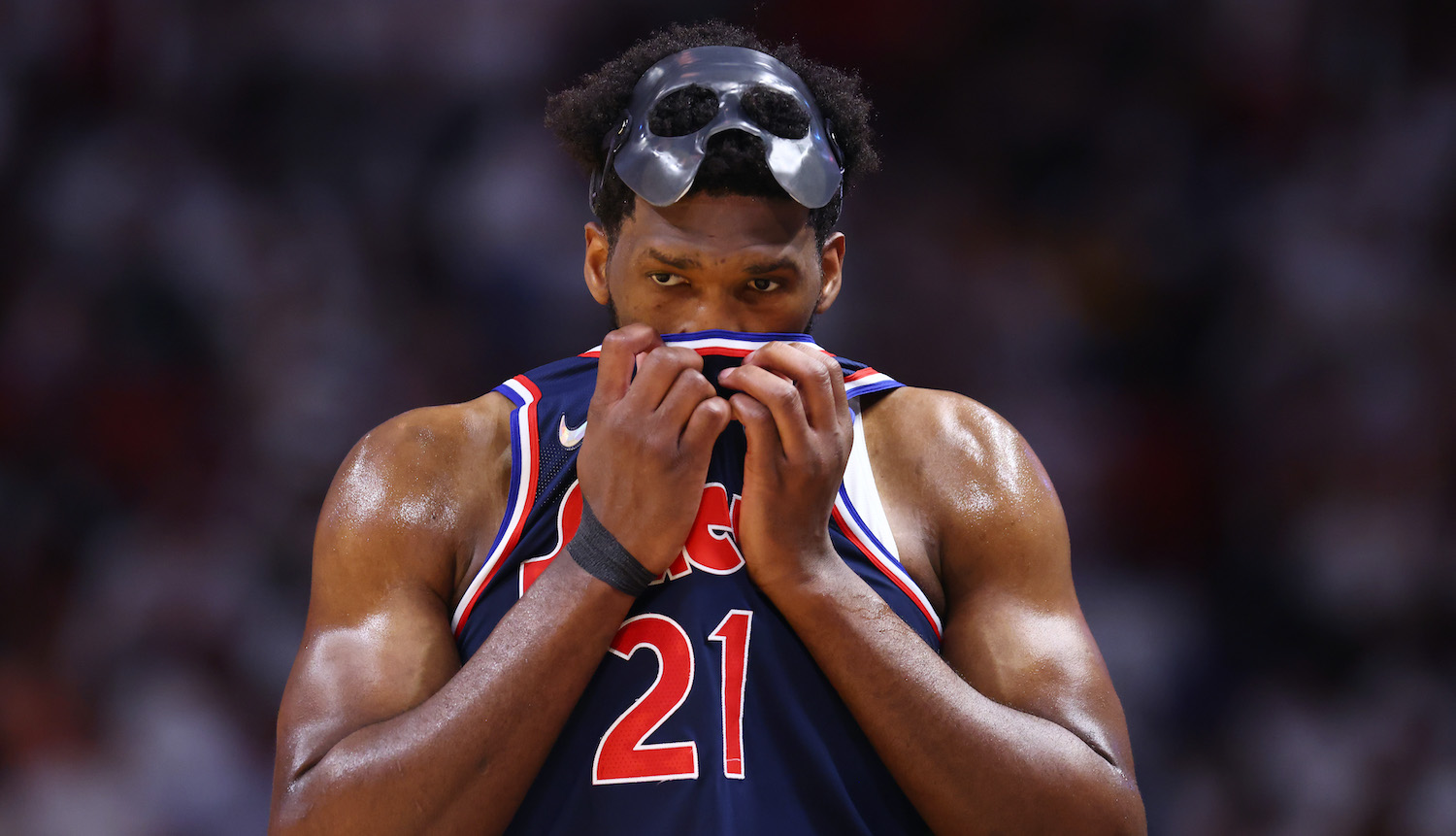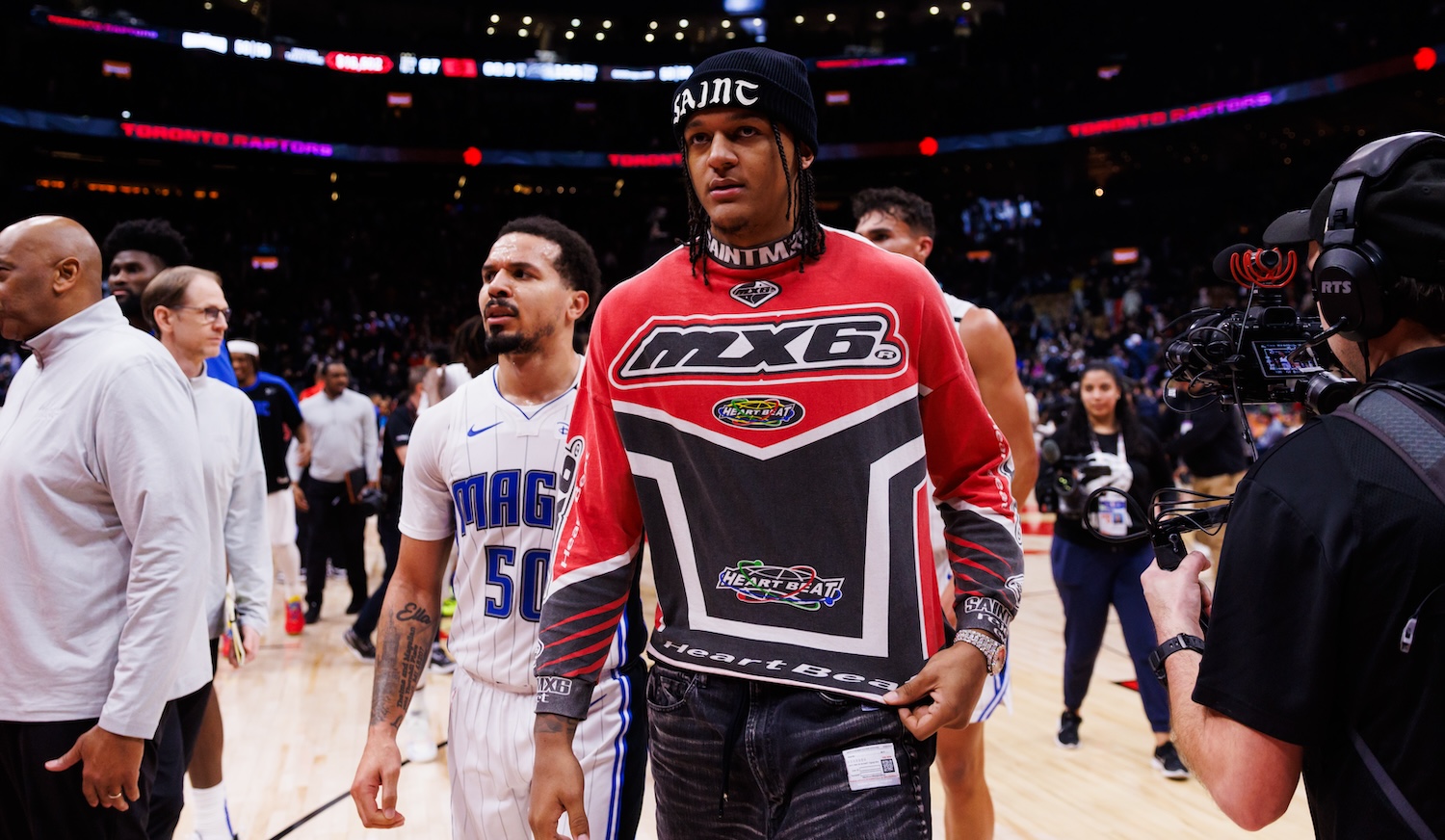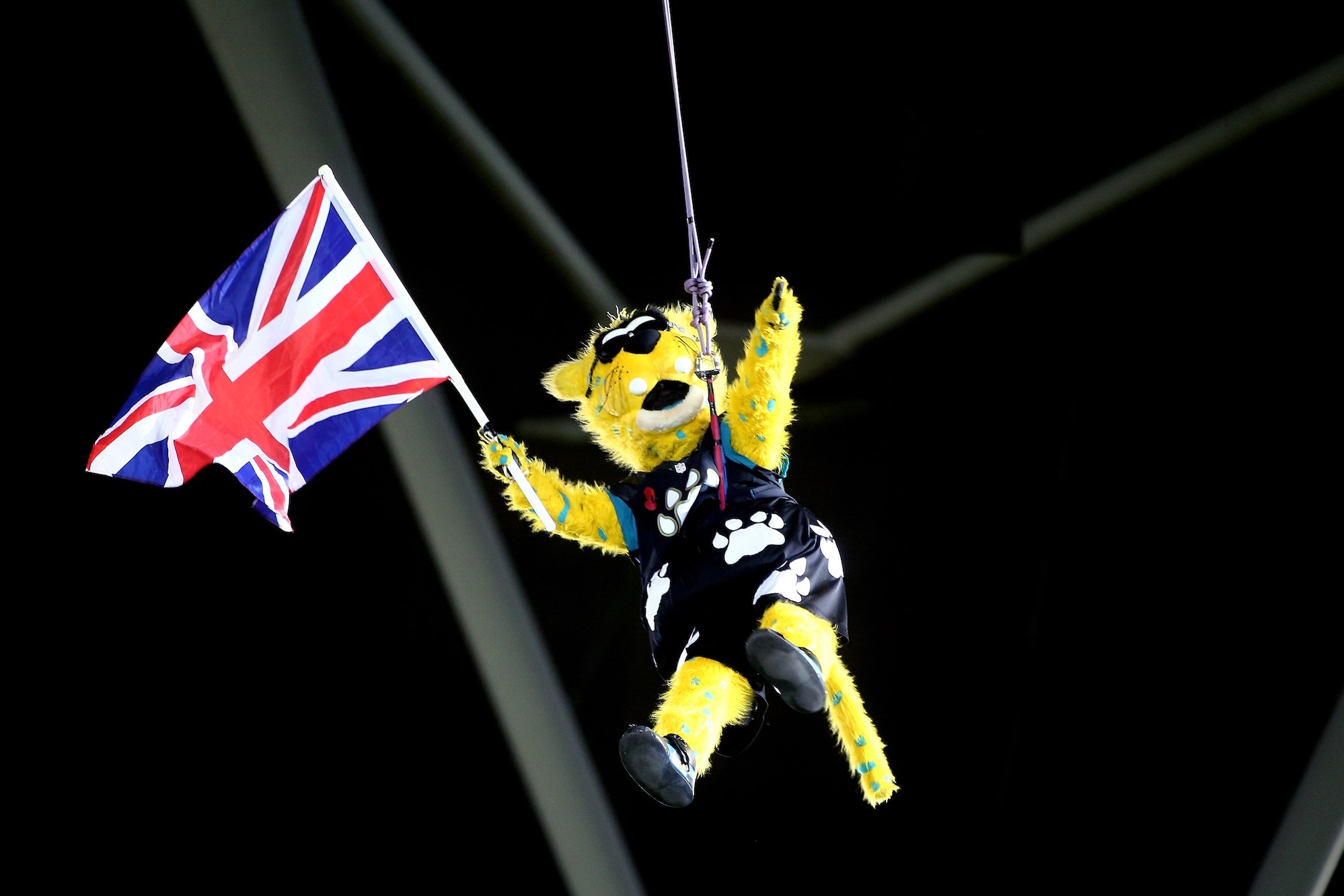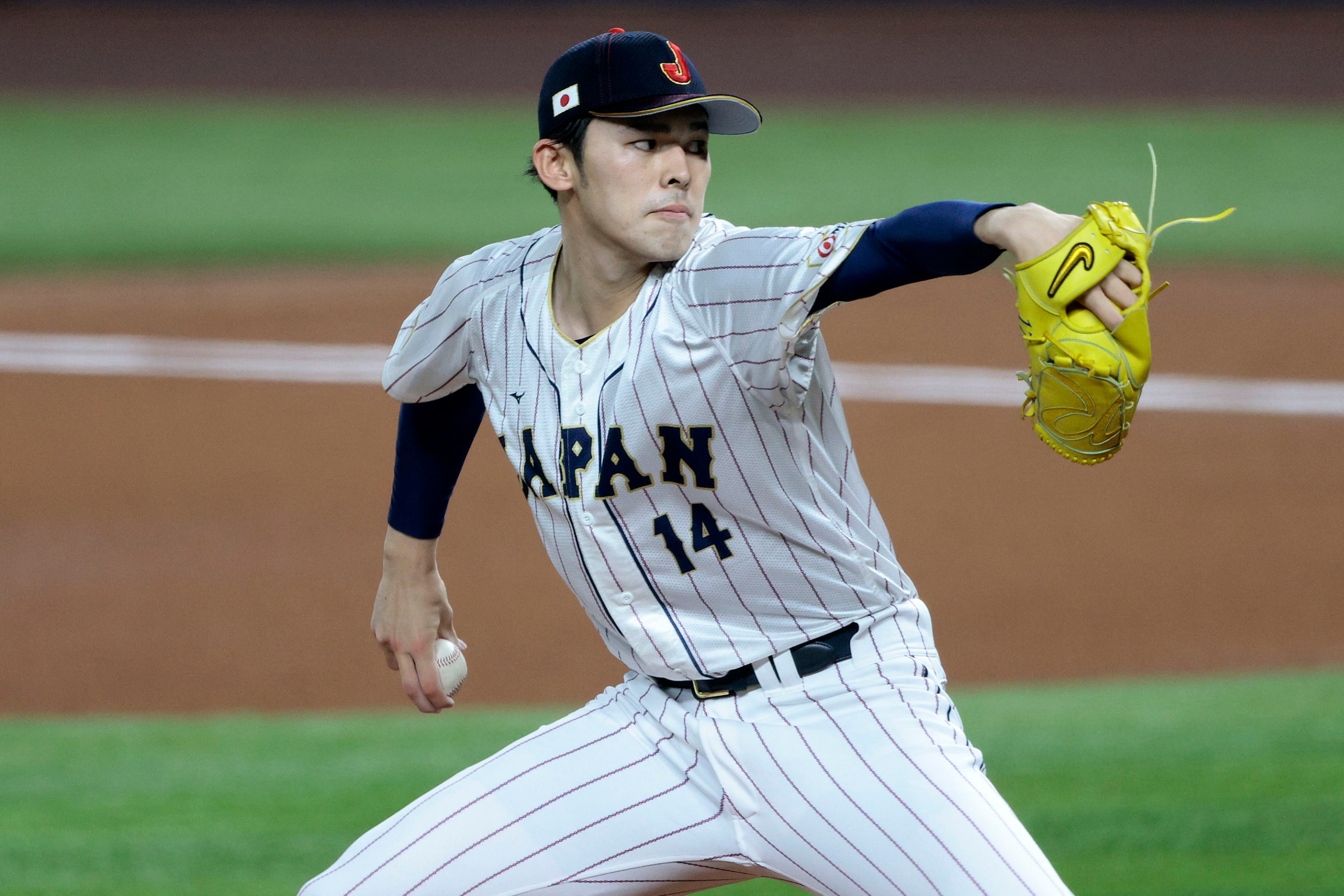Joel Embiid, who did not win his first career MVP award earlier this week, had a less-than-dominant performance against Miami in a brutal Game 5 loss. The Sixers are not going to win many games in which their superstar center shoots three free throws and grabs half as many rebounds as Max Strus, and as much as TNT's crew of guys who haven't closely watched an NBA game since 2011 want you to believe that Embiid's mediocre performance stems from frustrations over his second-place MVP finish, the guy is playing through three distinct, significant injuries. Still, Embiid clearly wanted to win the award this season and felt he did enough to earn the honor.
Losing by 35 while playing through a broken eye socket and a torn thumb ligament, then having to answer questions about how sad you are that you didn't win an award you thought you deserved sounds awful, though Embiid offered a rather thoughtful, insightful answer to a question about the MVP race. Embiid noted that he wasn't surprised with the result, that Nikola Jokic was a deserving winner, and that the award is decided by somewhat subjective criteria. But Embiid also had a point to make about the mechanics of awards voting and the very real financial implications therein. The MVP award is not a purely ceremonial honor, as players who win an MVP are automatically eligible for a supermax contract worth 35 percent of the cap (a normal max is worth 30 percent of the salary cap.) Specifically, he singled out Bill Simmons's recent "Fuck Jalen Green!" outburst as a way to talk about the odd amount of power that awards-voting media members have in determining the amount of money that players can make.
"What if Jalen Green was in a position to earn a supermax, or I don't know, an All-Star appearance and you got someone sounding like that, and he has a lot of power," Embiid said. "He can sway a lot of other media members. I don't think it's fair. I don't think it's OK. So that's really the only thing I said about those awards."
Joel Embiid congratulates Nikola Jokic for winning MVP but says “I don’t know what I need to do to win it,” and makes the point that media people like “@BillSimmons who say ‘f- Jalen Green’ shouldn’t be part of the awards process.
— Five Reasons Sports (@5ReasonsSports) May 11, 2022
Here’s some of video of you can hear. pic.twitter.com/xdXgykKoVp
Embiid is not the only NBA star to make this point. Jayson Tatum also called for the process to change, noting that having 30 extra million dollars at stake over what are essentially matters of taste—i.e., Simmons complaining about having to put LeBron James on his third All-NBA team over stylistic quibbles—is straightforwardly unfair. Last month, Draymond Green also called Simmons out for his blitheness, noting that Simmons held an outsize amount of power over the amount of money that Jalen Green is eligible to earn over the course of his career. It is worth noting here that Simmons has insisted his barb was taken out of context, and on the podcast episode in question, he followed up his outburst with a point about how much he liked Green. That isn't altogether relevant here, since the issue both Embiid and Green have with the "Fuck Jalen Green!" incident has nothing to do with the specific grudge Bill Simmons does or does not have with Jalen Green; they're correctly pointing out the uncomfortable gap between how much power an awards voter has over who is eligible to make an extra eight figures in their next contract and the casual way that power is wielded.
The supermax provision—officially, the Designated Veteran Player Extension—was created to give small-market NBA teams an extra bit of leverage when negotiating with superstars. Players are eligible to earn the extra cash only if they sign with the team that drafted them or traded for them when they were on their rookie deal, and only if they win MVP or Defensive Player of the Year, or make an All-NBA team. The full text of the rule is much more complex than this, and players can also qualify for more lucrative rookie deals through the Rose Rule, which is also awards-based. If this seems overly theoretical, many players have narrowly missed out on bigger deals. Jayson Tatum and Donovan Mitchell "lost" $33 million last offseason after they narrowly missed out on making an All-NBA team, and Trae Young's All-NBA candidacy (which is reportedly in the balance) will determine whether or not he can earn an extra $34.5 million over the course of his upcoming extension. Tatum cruelly had more votes than the last member of the third-team, but positional requirements kept him off the team.
If one accepts the league's premise that incentivizing star players not to bolt their draft cities by giving them some extra money, it is logical to do so on an objective basis of what exactly a "star" is. The All-NBA teams, imprecise as they are because of positional rigidity, are useful markers for determining whether or not a player is a star, as only 15 players make All-NBA teams. Where this logic falls apart is in the inherent subjectivity of All-NBA voting. Last season, Bradley Beal squeaked onto the third team. He averaged 31.3 points and 4.4 assists per game with 59.3 percent true shooting for a 34-win Wizards team (last season was only 72 games long.) Meanwhile, Mitchell put up 26.4 points and 5.2 assists per game and posted a 56.4 true shooting percentage for the 52-win, top-seeded Utah Jazz. Tatum logged 26.4 points and 7.3 rebounds per game on 57.6 true shooting percentage and his team went an even .500. Surely these stats are all not so similar that one couldn't sequence them and judge which player best met the criteria for All-NBA, though the point here is that the magnitude of the differences between players doesn't match up to the $33 million at stake as voters have to make the decisions for themselves. Voters, it should be made clear, cast plenty of objectively indefensible ballots that season.
Embiid has made enough All-NBA teams that he is already on a supermax, though his point is still sound. Bill Simmons is probably among the more thoughtful awards voters, and as All-Star returns show every season, media members tend to be about as accurate as coaches or players when selecting who they think has done the best job. I think most of the past decade's All-NBA teams have been largely accurate, but even then, I don't think media types should have the power to adjudicate decisions with such hefty stakes. Maybe the better way to accomplish the NBA's goal here is to disentangle supermaxes from awards, though it's not like All-Star appearances or scoring averages or player votes would be any less messy. The core issue here is the existence of a salary cap, one that artificially limits how much players can make so the owners can ensure profit and safe franchise valuations. In this way, I think it's useful to think of a supermax as a ceiling imposed on the game's very best players rather than a gift bestowed to them. While a salary cap does depress wages, the league currently has one, and as long as it does, the maximum amount of money a player can earn within the system should be allocated in a less grubby way.





